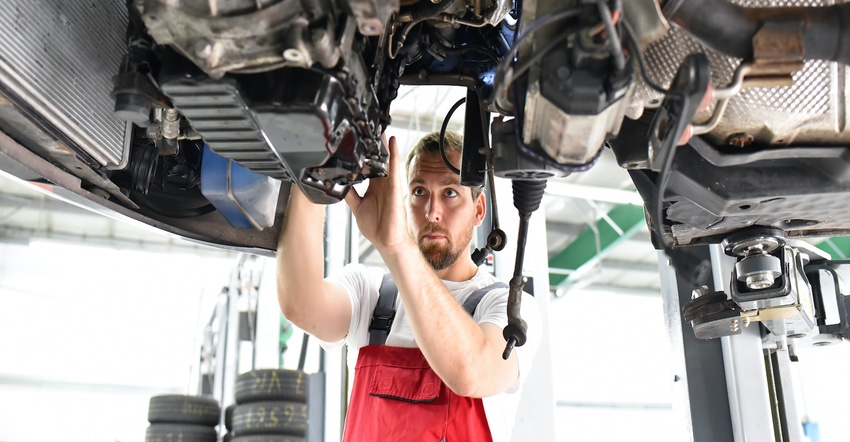Automotive Technicians Must Train for Hybrids and EVs
Just how much tech and test equipment do modern automotive technicians need to know?
March 17, 2021

Even before the COVID-19 pandemic, there wasn’t enough skilled labor to meet the demand in many industry segments. In particular, automotive technicians remain some of the most sought after in not just the car repair industry, but in advanced manufacturing and other segments.
According to the annual August report from the TechForce Foundation advocacy group, the demand for new vehicle technicians outpaced the supply of new graduates by nearly three to one in 2020. Almost 400,000 additional automotive technicians will be needed from 2020 to 2024 to meet current demands, the report says. However, only 36,742 students graduated from post-secondary automotive programs during the 2017-18 school year.
The shortage is due to many factors. First, the last couple of decades has brought real changes to the types of vehicles that are created. Today’s technicians work on fairly high-performance vehicles that rely heavily on computer technology to run. This means that the needed automotive skillset has shifted from purely mechanical to include electronic and computer skills. This shift has placed new emphasis on technicians trained to use new test and support equipment for electronic-intensive vehicles, like hybrids and electric vehicles (EVs).
Unfortunately, many older mechanics had trouble developing the new skill set and have exited the industry.
Education for New Techs
Specialized work as an automotive technician requires specific training. There are many technical trade school programs across the country, such as the Automotive Service Technology program from Portland Community College. Like many other similar programs, the PCC degree and certificates are accredited by the National Automotive Technicians Education Foundation (NATEF), an arm of the industry certifying body, Automotive Service Excellence (ASE).
Learning the fundamentals of automotive repair and how to work on internal-combustion engines is just the start. Technicians will also need a solid foundation in electricity and electronics, be as comfortable working with both a laptop as with a socket and multi-meters, and be able to follow complex diagnostic charts to find and fix problems in hybrids and EVs.
Further, the evolving electrification of the auto space means more hybrid gasoline-electric vehicles in the near-term transition phase before EVs are more prominent. Pundits say that hybrids will remain as a crucial powertrain over the next few decades, which will require traditional maintenance type work for the internal combustion components.
In addition to technical community colleges, several automotive manufactures have started offering courses in EV training. One example is Tesla, which launched an education program a few years ago to train a new generation of electric car technicians. The company’s START is an intensive training program where students develop technical expertise and earn certifications through a blended approach of in-class theory, hands-on labs, and self-paced learning. Tesla has partnered with colleges across the country to integrate Tesla START into automotive technician curriculums as a 12-week capstone—providing students with a hopefully smooth transition from college to full-time employment.
To help with the training and certification of modern technicians, the Automotive Service Excellence (AES) has been incorporating electric vehicle details in some testing materials. Further, AES has developed a dedicated hybrid course and is also working on an advanced driver-assistance system (ADAS) program. For now, assisted driving systems are just beginning to appear in newer vehicles, but there will be a rapid increase of such tech in the future.
As with most professions, continual training and a lifetime of education is a must.
John Blyler is a Design News senior editor, covering the electronics and advanced manufacturing spaces. With a BS in Engineering Physics and an MS in Electrical Engineering, he has years of hardware-software-network systems experience as an editor and engineer within the advanced manufacturing, IoT and semiconductor industries. John has co-authored books related to system engineering and electronics for IEEE, Wiley, and Elsevier.
About the Author(s)
You May Also Like





